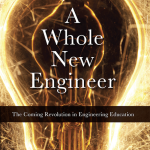James and I were talking over e-mail the other day, and he said that he felt isolated living in South Florida. Isolated? You should try living in South Africa, James – Then you’ll know what isolation is!
Not only do we spell “neighbour” incorrectly and watch sports matches that take five days to complete, but we also don’t have overnight shipping from the Digikey or Mouser, or Maker Faire NY, or Solid Con or… a whole lot of other things. So just how lucky are makers who live in the States or Europe or China, and what’s it like living 10,000 miles from Silicon Valley?
There’s little doubt that most of the maker/enthusiast communities centre around Europe and the USA – with traditionally manufacturing-focused regions like Shenzhen rapidly catching up. The conferences, the Maker Faires, the Hackaday parties, the makerspaces, the startup accelerators – heck, even the accents on the podcasts – all happen there! However, despite the odds being stacked against someone as isolated as me, I’ve managed to work my way from being a software developer (yep, sorry!) to an enthusiast who’s pretty competent with a microcontroller, a soldering iron, and a bunch of 0805 jellybean components. It was tough, but here’s how I managed.
Sharing is Caring
One of the things that continues to stun me is the willingness of people to share their knowledge. There are a handful of really insightful and comprehensive websites that were never built for Isolated Engineers based in South Africa – they were built simply because the owners wanted to share their learnings with others. Little did they know how extremely useful their content would be in developing the skills of readers 1000’s of miles away. It was this that inspired me to create my own blog, which ironically ended up helping readers mostly from the USA – “the big wheel turns,” as we say in South Africa, and I was thrilled to be able to help others.
Numbing my Eardrums
 Knowledge is one thing, but often one needs a community to inspire you to learn new things, to hear of others’ challenges and victories, and to help you crack a smile at a nerdy joke. In SA we have a limited number of hackerspaces. One of the more prominent – House 4 Hack – is doing some amazing things in the areas of education and community empowerment – as well as some strange stuff like 3D-printing a lawn mower!
Knowledge is one thing, but often one needs a community to inspire you to learn new things, to hear of others’ challenges and victories, and to help you crack a smile at a nerdy joke. In SA we have a limited number of hackerspaces. One of the more prominent – House 4 Hack – is doing some amazing things in the areas of education and community empowerment – as well as some strange stuff like 3D-printing a lawn mower!
Unfortunately many enthusiasts here aren’t close enough to the sparsely distributed makerspaces to participate – so we turn to podcasts. As sad as it may sound, my handful of regular podcasts (in the traffic every morning) became my community. I learned a great deal (did you know that yarn goes well with electronics according to Embedded.FM), I argued a great deal (mostly with Dave from The Amp Hour), and generally enjoyed the not-always-very-technical chatter.
Reading ‘till my Eyes Water
Another great resource was the magazines – as many as my credit card would let me subscribe to. After going completely overboard in a quest for projects, know-how, tutorials, and reviews I settled into my handful of favourites (yes, that’s spelled correctly here in SA). Magazines were also one of my first real opportunities to contribute and give back to the communities – first with Elektor out of Europe, where I wrote a couple of articles around a prototyping board I developed, and then with Nuts and Volts out of California – I still get excited every time I press send on the next article in my “Beyond the Arduino” series I’m lucky enough to write for them.
While the tide seems to be turning against formal media like magazines, I really value their contribution to learning. At worst, they are a source for curated content that you can trust – content that you can easily access in a print format, and content that you know will be immediately interesting and meaningful to you. There is definitely a skill in selecting worthy content, massaging it to suit a defined audience, and then presenting it to them – that is the value of magazines to a time-starved person like myself.
Doses of Patience
I had an opportunity a while back to talk to Karl and Corey of The Spark Gap Podcast, and they couldn’t believe that it took 2.5 months – yes, 2.5 months – for some prototype PCBs I’d ordered to arrive from China. The courier costs were crazy, so I decided to rely on our pretty weak postal system – and I paid the price. So currently I batch a whole set of PCBs up, order them in a single go, and pay for them to be couriered to SA. The courier costs are higher than the cost of the PCBs themselves, but it still works out cheaper than having them spun here.
On the component side, we are lucky enough to have RS Electronics here in South Africa. They offer a 1-day turnaround on more popular components; less popular ones take 5 to 7 days. So in addition to patience, you also need to be a pretty good planner to make sure you order your components ahead of time. I of course don’t always fall into that category, so get caught out waiting 5 days for the final need-it-to-finish -the-project component.
It’s not that bad!
If you’re part of the “connected” world, and your eyes are moistening at the thought of being so far removed from Silicon Valley, Digikey, OSHPark and the Maker Faires, take heart. It’s really not that bad. Ten years ago, absolutely I would have been isolated. But now, with the connectivity solutions that work over the Internet, I’m as close to the webinars, podcasts, Skype calls and Google hangouts as residents of, say, Supai, Arizona (you gotta check them out).
And of course, electronics aside, I have a host of other things here that nobody in the Northern hemisphere has (the header image is one of my holiday snaps)! It’s all about balance…
My top 12 resources to keep me connected
Online Courses and Tutorials
- EdX: Electronic Interfaces: Bridging the Physical and Digital Worlds
- EdX: Embedded Systems: Shape The World
- AddOhms General Electronics Tutorials
- Contextual Electronics where you learn by building
Forums
- AVR Freaks – for all things AVR-related
- Arduino StackExchange – for Arduino-related questions: pretty technical
- TI’s E2E Community – a TI-supported forum for their products (I use their MCUs and a few other chips regularly)
Podcasts and Magazines
- The Amp Hour – hosted by Chris and Dave
- The Spark Gap Podcast – very reputable as both James and I have been on – or perhaps they were desperate 🙂
- Embedded.FM – hosted by Elecia and Chris
- Nuts and Volts Magazine
- Elektor Magazine
My Favourite Resource to Contribute To
Of course, I spend most of my time writing for my own blog. If you’re at all curious why not take a peek…




